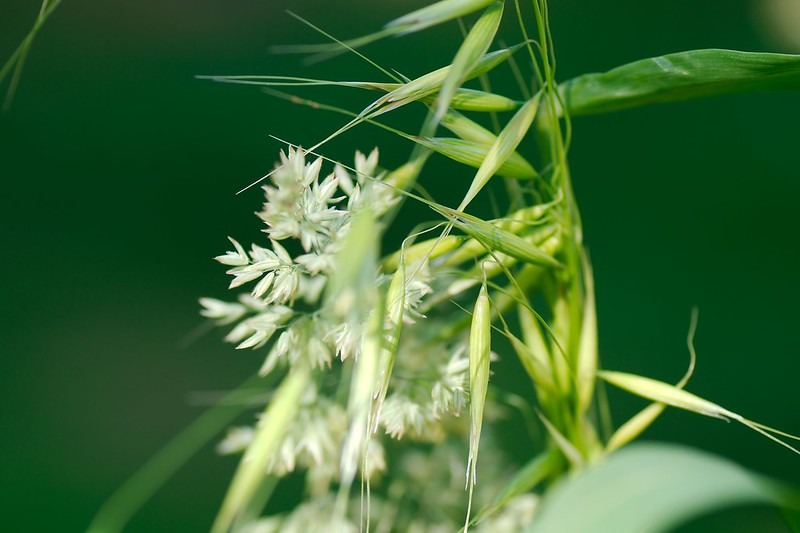
GM/Biotech Crops Report – April 2023
11th April 2023- GM/Biotech Crops Monthly Reports (BELOW) form part of BCPC’s free three-tier Biotech Crops Info service.
- This service also includes a weekly round-up of news from around the globe – see BCPC Newslink GM Crops section.
- Plus – Free access database on over 300 GM/biotech products covering 23 crops in the global market visit BCPC’s GM/Biotech Crops Manual – Register here for free access.
- Already registered? Click here
GM/Biotech Crops Monthly Report April 2023
Improving pesticide formulations

Suspension concentrate formulations typically contain particles of active ingredient in the size range 2 – 5 microns.
Now a company has developed a technique to reduce the size of the particles further to 0.2 – 0.5 microns.
This improves the solubility of the active and allows it to penetrate plants more easily.
Early work was done with azoxystrobin as found in Amistar and trials have supported the claim that it is at least as effective at half the normal dose rate.
CRD have approved this new formulation technology for azoxystrobin as Soar (MAPP 19525) which is recommended on cereals at 0.5 l/ha as opposed to the Amistar dose rate of 1.0 l/ha but, because no trials work has yet been completed in vegetable crops, the use is currently restricted to cereals only. There are plans to develop this new formulation technology for other actives formulated as suspension concentrates. Approval notice
Pic: DappleRose
A Cure for HIV infections
A third man who developed leukaemia after contracting HIV has been cured by receiving a bone marrow transplant with bone marrow that carried a mutation that disables the CCR5 receptor that the HIV virus uses to infect immune cells. Now work is underway to explore the possibility of using CRISPR editing to mutate the CCR5 gene in the immune system of HIV sufferers.
China rules on gene-editing humans
Following the outcry that ensued when a Chinese scientist announced that he had edited the genes of two young babies to make them immune to HIV, China has tightened up the rules. Previously they only applied to research in hospitals, for example in drug trials, but now they apply to all research in all institutions. Despite this, there are concerns that the new rules do not go far enough.
Gene-edited food may now be grown and sold for consumption in England
Following the anticipated change in English law, companies may now develop, grow and sell the produce from gene-edited crops but Scotland, Wales and Northern Ireland have yet to ratify this change in the law.
A cure for sickle cell anaemia
CRISPR Gene-editing now offers a cure for the painful condition of sickle cell anaemia but the downside is that it is very expensive so will not be widely applicable. A by-product of having sickle cell anaemia is immunity to malaria but thankfully there is now a vaccine available.
Adapting rice for Martian soil
Martian soil is short of nutrients but by editing some of the genes in the roots of rice scientists in America believe that they can adapt rice to make is suitable for growing on Martian regolith when we start to colonise the planet. This could be the first step in building up humus on the planet before other crops gain a foothold.
Covid-19 treatment from plants
Scientists at Arizona State University have found a way of using tobacco plants to produce monoclonal antibodies that help prevent the virus entering human cells where it proliferates and also stimulate the immune system to attack the reduced viral load.
Septoria weakness
Rothamsted have sequenced the genomes of 18 different Septoria isolates collected from across Europe to identify genes that are essential for the fungus to grow on wheat leaves. These core genes have been identified and will be the target for future Septoria treatments.
Improving rice resistance to blast fungus
The Centre for Research in Agricultural Genomics (CRAG) has discovered that treating rice with iron boosts the crops immune system and makes it more resistant to attack by rice blast fungus.
Increasing CRISPR editing accuracy
Transposable elements are considered to be genome ‘parasites’ that insert themselves in specific parts of a chromosome and now a team at Research Square report that they have engineered these ‘parasites’ to accurately insert CRISPr and Cas9 elements into genomes at specific sites with an increase in accuracy over traditional techniques.
Mosquito modifications
Mosquitoes spread many diseases such as Dengue fever, Zika virus but they don’t suffer from these diseases themselves. Now a team at Texas University has discovered a way to disable the immune system of the mosquito that quells these infections so that the mosquitoes also suffer and are therefore less active in spreading the diseases. They are now investigation the possibility of using a gene drive to spread this modification throughout mosquito populations.
Taming mackerel
Mackerel are apparently very aggressive fish with cannibalistic tendencies but a team in Japan are attempting to quell this aggressive behaviour by knocking out an arginine vasotocin receptor in fertilised eggs and so make them more suitable for domestication and farming.
Biopharming
Two biologists at Colorado University have developed a method of using soybeans to produce a range of pharmaceutical compounds that can be used to treat cancer, develop vaccines and even grow essential supplements for baby milk.
Improving yellow rust resistance in wheat
Wheat yellow rust mosaic virus can be a devastating disease but a team at Melbourne University have sequenced a gene that reduces its effect in some varieties. Now the sequence is known, candidate varieties can be screened for the presence of this gene.
Improving nitrogen use efficiency in wheat
Researchers at Murdoch University in Australia have identified specific gene clusters in wheat that are associated with high yields and high protein content of grain. The details of the genes involved will be made available to wheat breeders in Australia.
Electricity from fresh air
Fresh air contains small amounts of hydrogen and scientists at Monash University in Melbourne have discovered an enzyme in a bacterium that can use these low levels of hydrogen to create electric currents. If it can be scaled up it could be a clean source of sustainable energy.
THE LATEST ADDITIONS TO THE GM/BIOTECH DATABASE ARE:
The latest approvals of biotech crops to report this month:
• HB4 Wheat with improved drought tolerance approved for environmental use and cultivation in Brazil and for food, feed and cultivation in Indonesia.
FOR INSTANT ACCESS TO GM BIOTECH MANUAL CLICK HERE (Registration required)
Already Registered? Click here to access

